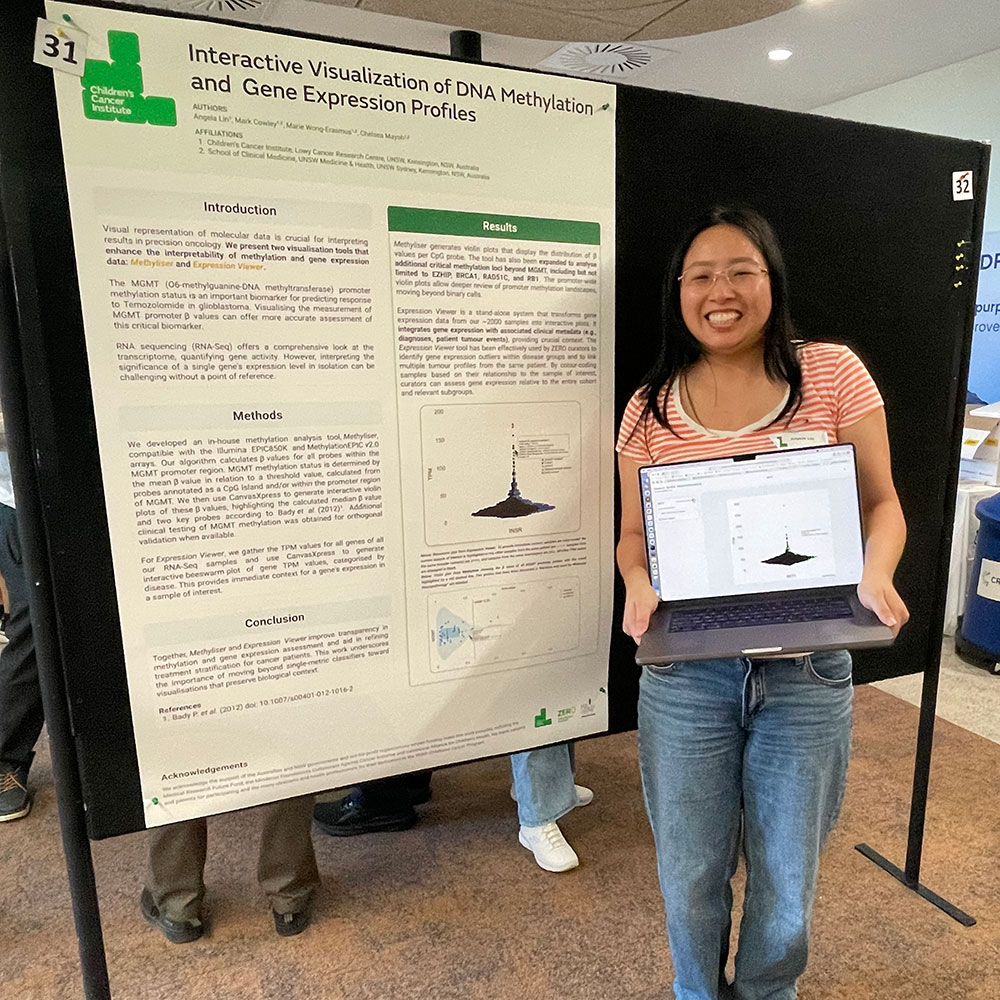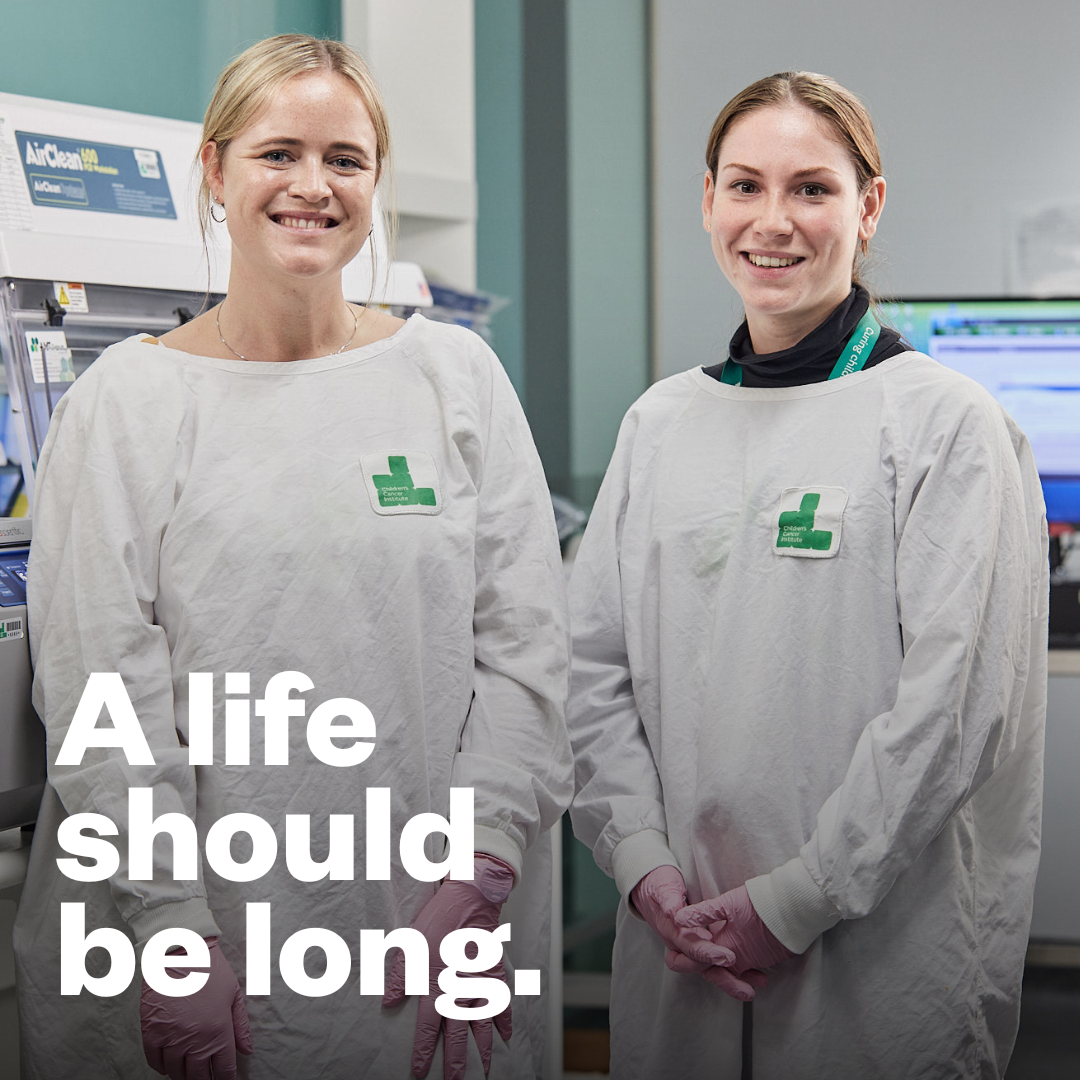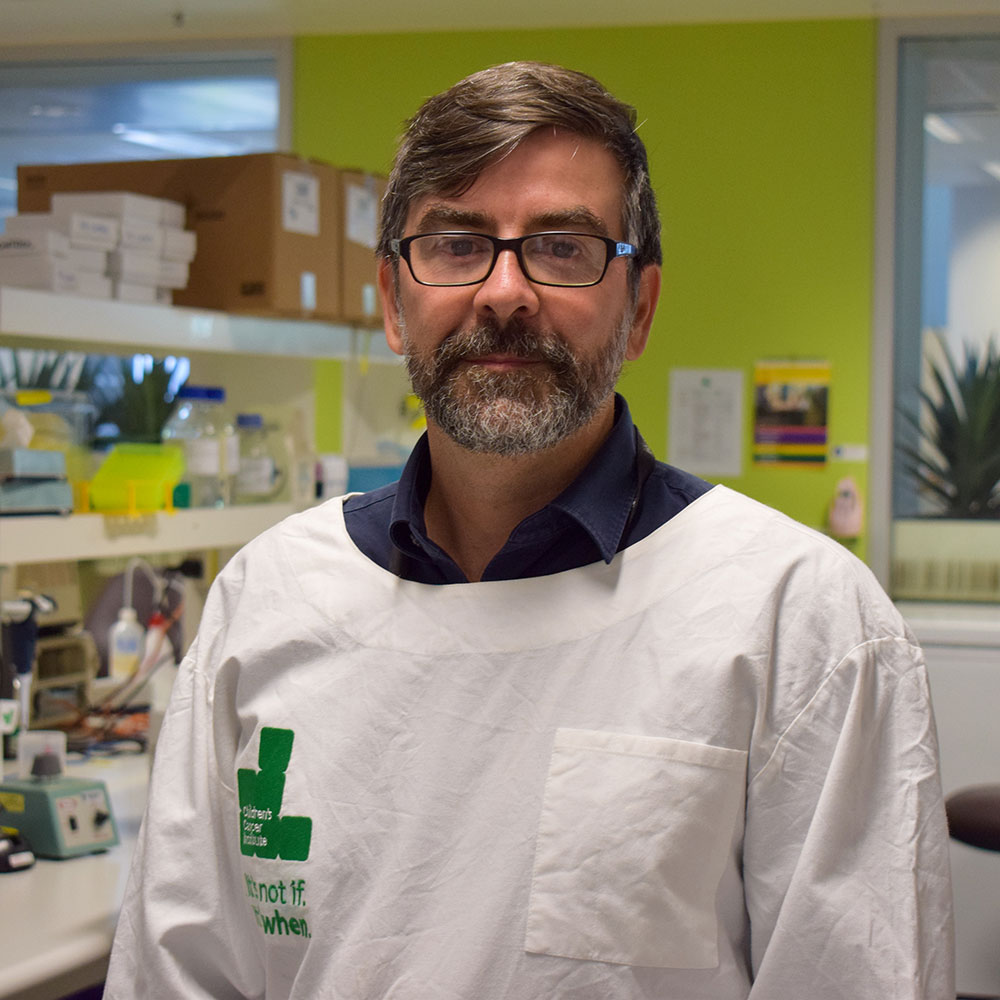Cancer cells aren’t like normal cells. Their metabolism is different for reasons we don’t fully understand. The metabolic pathways that turn one molecule type into another step-by-step in healthy cells are qualitatively and quantitatively different in cancer.
Denise says that, among cancer cells’ idiosyncrasies, is that they metabolise glucose differently from normal cells to provide energy to fuel tumour growth. She says that’s something we need to explore in neuroblastoma, the most common solid tumour in infants.
“Exploring how neuroblastoma cells use glucose to get energy means looking at not just one type of metabolite at a time, but at the whole metabolic pathway and even interlinked pathways.
“That’s very complex and poses all sorts of research challenges,” she said.
Neuroblastoma is responsible for 15% of childhood cancer deaths and is one of the major tumour types studied at Children’s Cancer Institute.

To profile neuroblastoma cells’ glucose metabolism, Denise recently travelled to San Diego in the US to work in the lab of Prof Andrei Osterman and Dr David Scott at the Sanford Burnham Prebys Medical Discovery Institute. There she learnt how to analyse energy metabolism in cancer cells, profiling different metabolites to get a more complete picture of what’s going on – a bit like the way a criminal profiler on TV crime shows pieces together bits of evidence to create a picture of a criminal suspect.
Denise, a recipient last year of a $100K Balnaves Foundation Young Researchers grant, used carbon-13, a heavy isotope of carbon, to tag glucose molecules fed to neuroblastoma cells.
She was able to trace glucose metabolism in detail using a technique called gas chromatography mass spectrometry (GC-MS). She could see what glucose got converted to and how that differed from its fate in healthy cells. She could analyse the total metabolites in neuroblastoma cells as well as the relative amounts of individual metabolites in the cells’ metabolic pathways.
The path ahead

The goal of Denise’s study is to find a way of inhibiting the key metabolites that help cancer cells survive and grow. By targeting pathways specific to cancer cells, there’s potential for future treatments for childhood cancer to be less toxic to normal cells. Side-effects due to drug toxicity in normal cells are a serious, long-term problem for many childhood cancer survivors.
Denise hopes her metabolic profiling will lead to a new generation of safer, more effective cancer drugs and that new analysis technologies will make it easier and faster.
“What was really exciting was trying a comprehensive new type of analysis that would help me to study whole pathways at a time, all within a single sample, without the days and days of sample preparation I usually need to do!” she said.
Read more about neuroblastoma research.















